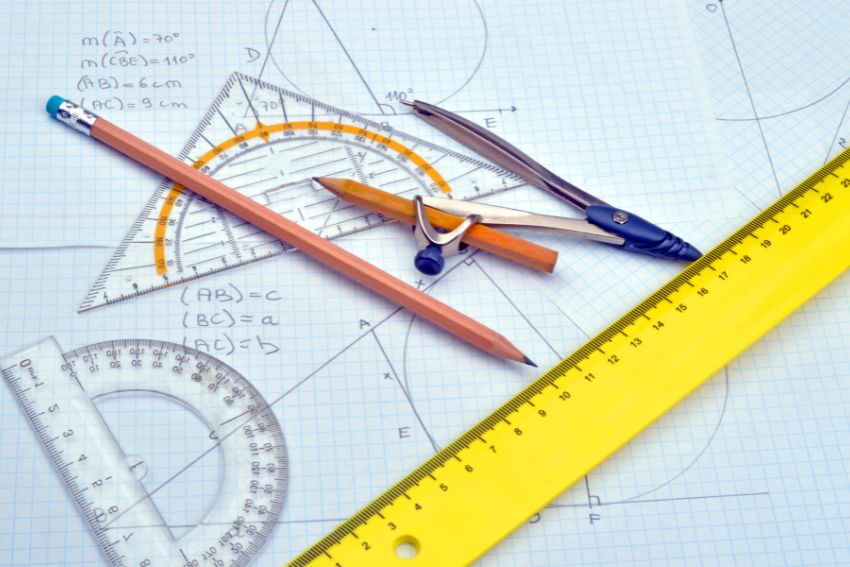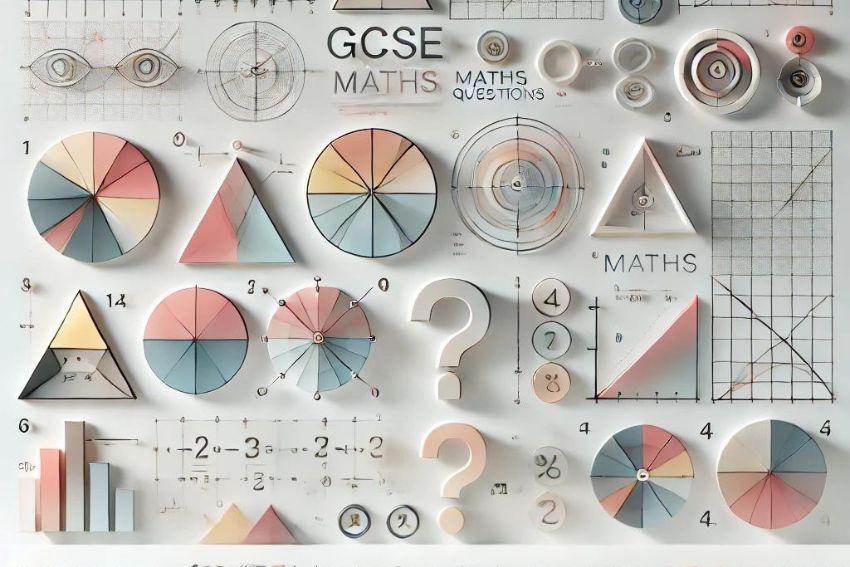A Level Maths Questions: Your Ultimate Guide to Exam Success
A Level Maths questions play a vital role in building the skills needed for careers in STEM, financee and analytical fields. A-Level Maths is known for its challenging topics and complex problem-solving requirements, which often make it overwhelming for many learners. However, with the right preparation and practise, mastering this subject is totally achievable.
This blog aims to help you. We’ve put together a comprehensive collection of A Level Maths questions by topic to make your revision more effective and focused. Whether you’re tackling calculus, trigonometry, or statistics, you’ll find organised practise questions that align with your syllabus. These resources will help you understand key concepts, improve problem-solving skills, and feel more confident about your exams.
Let’s dive in and make A Level Maths a subject you can conquer with ease!

Exam Board Overview: Edexcel, AQA and OCR
Before diving into practise, it’s important to know which exam board your A Level Maths syllabus follows. Different boards have slightly different requirements, so understanding these can help you focus on the right topics. Here’s a quick overview of the main exam boards and their specifications:
- Edexcel: Known for its structured approach, Edexcel’s Maths Exam covers core topics like algebra, calculus, and statistics. Their syllabus emphasises problem-solving skills, making it a popular choice for many schools. You can find practise questions and past papers to align your revision.
- AQA: Focuses on real-world applications of maths and encourages critical thinking. Their syllabus include plenty of applied maths questions, especially in mechanics and statistics. Visit their website for exam guidelines, practise questions, and detailed syllabus breakdowns.
- OCR: Offers a balanced approach to pure and applied maths, with an emphasis on understanding fundamental concepts. Their A Level Maths provides in-depth support for students aiming to master the subject. You’ll find helpful resources, including topic-specific practise papers, on their official site.
Knowing your exam board ensures you’re studying the right material and using resources tailored to your syllabus. With this foundation, let’s move on to exploring A Level Maths Questions by topic to sharpen your skills!

Pure Maths for A Level: Practise Questions by Topic
Now that you understand the exam boards, let’s explore A Level Maths questions by topic. Pure Mathematics is a core part of the syllabus, building essential skills for both exams and practical applications. Below are key topics with examples and step-by-step solutions to help you prepare effectively:
Algebra and Functions
Strengthen your understanding of simplifying expressions, solving equations, and working with functions.
Example: Solve the quadratic equation:
Solution: Factorize the equation:
The roots of the equation are:
Coordinate Geometry
Practise graphing lines, circles, and conic sections to build spatial reasoning.
Example: Find the equation of a line passing through the points (2, 3) and (5, 7).
Solution:
Calculate the slope:
Use the point-slope form of a line:
Simplify to slope-intercept form:
Sequences and Series
Solve questions on arithmetic and geometric progressions, including terms, sums, and limits.
Example: Find the equation of a line passing through the points (2, 3) and (5, 7).
Solution:
Calculate the slope:
Use the point-slope form of a line:
Simplify to slope-intercept form:
Trigonometry
Master solving trigonometric equations, proving identities, and applying rules like sine and cosine.
Example: Solve for .
Solution:
occurs at:
and:
Calculus
Differentiation and integration are crucial components of Pure Mathematics. Practising A Level Maths differentiation questions is key for mastering gradients, optimization problems, and rates of change.
Example: Differentiate .
Solution:
Example: Integrate .
Solution:
Vectors
Develop skills in vector addition, magnitudes, and directions in two and three dimensions.
Example: Given and , find .
Solution:
By practising these examples, including A Level Maths differentiation questions, you’ll build confidence, improve problem-solving skills, and prepare for even the hardest A-Level Maths questions. Let’s move on to applied mathematics for more practise!

A Level Maths Questions: Mastering Mechanics and Statistics
Now that we’ve covered pure mathematics, let’s dive into applied mathematics. This section applies maths concepts to real-world scenarios, making it practical and rewarding to study. Here’s what you can expect:
A Level Maths Questions: Mechanics
Kinematics: Answer questions about motion, such as interpreting motion graphs or using equations of motion.
Example: A car accelerates uniformly from rest to 20 m/s in 5 seconds. Find its acceleration and distance traveled.
Solution:
Acceleration:
Distance:
A Level Maths Questions: Statistics
Data Representation: Answer questions about histograms, box plots, or cumulative frequency graphs.
Example: Interpret a histogram to find the frequency of a given class interval.
Solution:
To find the frequency of a class interval, use the following formula:
Multiply the height of the bar by the class width for each interval to determine the frequency.
Probability: Solve problems involving probability rules or distributions.
Example: A bag contains 3 red balls and 5 blue balls. What’s the probability of drawing a red ball?
Solution:
Use the formula for probability:
Substitute the values:
The probability of drawing a red ball is:
Statistical Distributions: Work with binomial and normal distributions.
Example: If , find .
Solution:
Use the binomial probability formula:
Here:
- : total trials
- : desired successes
- : probability of success
Substitute these values into the formula or use a calculator to find:
By practising these questions, you’ll strengthen your understanding of mathematical applications and gain the confidence to tackle even the toughest problems. Let’s keep building your skills as we explore more resources for revision!
A Level Maths Practise Papers and Solutions: Your Key to Exam Success
Once you’ve practised questions by topic, it’s time to put your skills to the test with full practise papers. Working on past exam papers is one of the best ways to prepare for Maths A Level exams. It helps you understand the question patterns, improve your time management, and build confidence for exam day.
A Level Maths Questions: Past Exam Papers
Accessing past papers is essential for comprehensive practise. These papers simulate the real exam experience, helping you identify your strengths and areas needing improvement. Many exam boards, like Edexcel, AQA, and OCR, offer free downloadable past papers on their official websites.
After attempting a paper, reviewing model solutions is just as important. Detailed solutions show you the correct methods, helping you understand where you went wrong and how to improve. Look for resources that explain each step clearly to make learning easier.
Edexcel A Level Maths Past Papers
By combining practise papers with model solutions, you’ll sharpen your problem-solving skills and feel more confident tackling even the hardest maths questions. Ready to take your preparation to the next level? Let’s explore some study tips and strategies!
Maths A Level Study Tips: Manage Time, Avoid Mistakes and Excel
After practising Maths questions and reviewing past papers, refining your study approach is the final step to success. Developing effective study habits and using the right resources can make your revision more focused and productive. Here are some key tips to help you get started:
A Level Maths Questions: Time Management
Allocate specific time slots for each topic during your study sessions. Divide your time based on your strengths and weaknesses, spending more time on areas you find challenging. For example, schedule extra practise for calculus or mechanics if they’re your weaker points.
Common Mistakes to Avoid while Tackling the Hardest Maths Questions
One common mistake students make is skipping foundational concepts while rushing into harder problems. Always build a strong foundation before tackling advanced topics. Another mistake is neglecting to review errors from practise papers. Carefully analyze model solutions to learn from your mistakes and avoid repeating them.
A Level Maths Questions: Additional Resources
Supplement your learning with A Level Maths resources like textbooks, online tutorials, and interactive platforms. The A Level Maths Formula Sheet is an essential tool for quick access to key formulas in calculus, trigonometry, and statistics. Websites offering A-Level Maths questions by topic, such as Maths Genie, can help you target specific areas effectively and streamline your revision.
By managing your time wisely, avoiding common pitfalls, and using the best resources, you can approach your revision with confidence. Ready to put these strategies to work? Start incorporating these tips into your routine today!
Conclusion
Mastering Maths takes dedication, consistent practise, and the right approach. By working on hard Maths questions by topic and reviewing solutions, you’re building a strong foundation for exam success. The key is to practise regularly, learn from mistakes, and use all the helpful resources available to you.
If you’re feeling stuck on certain topics or want more personalised support, consider seeking extra help from Online A Level Maths Tutors. They can guide you through tricky problems, explain complex concepts, and tailor their teaching to your needs. With the right guidance, you can tackle even the hardest questions with confidence.
Finally, we’d love to hear from you! Share your experiences, challenges, or any additional questions in the comments below. Your journey to mastering A Level Maths is unique, and we’re here to support you every step of the way. Keep practising and believe in your ability to succeed!
If you’d like extra support with Maths, take a look at our answers page.
FAQs:
Is A Level Maths very hard?
A-Level Maths can be challenging as it builds on complex topics like calculus and mechanics. However, with regular practise, a clear understanding of the basics, and the use of A-Level Maths resources, it becomes manageable.
What are the best ways to prepare for A Level Maths exams?
Start by working through Maths revision plan, focusing on your weaker topics. Use past papers to familiarise yourself with the exam format, review your mistakes, and practise time management. Extra help from online tutors can also boost your confidence and performance.
What grade is 50% in A Level Maths?
Typically, 50% in Maths for A Level can range from a grade D to an E, depending on the exam board and grade boundaries for that year. Check specific grade boundaries for your board (Edexcel, AQA, OCR) for exact details.
How can I improve my problem-solving skills in A Level Maths?
Start by understanding the fundamental concepts behind each topic. Break problems into smaller steps and use strategies like drawing diagrams or writing out formulas. Practise a variety of A Level Maths questions to expose yourself to different types of problems, and review solutions to strengthen your approach.
What’s the best way to manage time during Maths exams?
Practise timed mock exams to build speed and accuracy. Allocate your time wisely, spending more on questions you can solve and returning to harder ones later. Familiarise yourself with question formats to quickly identify your approach.








